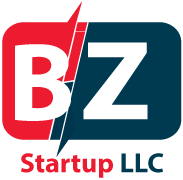Choosing the right business structure is a critical first step, as it influences tax obligations and liability. Options include sole proprietorships, partnerships, LLCs, and corporations. Each structure has its unique tax considerations: for instance, LLCs offer tax flexibility and limited liability, while corporations face double taxation but provide limited liability. Selecting a structure that aligns with your business goals can help optimize your tax responsibilities and streamline compliance.
Applying for Your EIN
An Employer Identification Number (EIN) is a unique identifier for tax filings and is required for tasks like opening a business bank account and hiring employees. You can obtain an EIN directly from the IRS, which ensures you’re ready to start your business activities without delay. Securing your EIN is essential for smooth operations and tax compliance from day one.
Maximizing Tax Deductions
Tax deductions can significantly reduce your taxable income, covering costs like office supplies, travel expenses, and payroll. Maintaining meticulous records allows you to maximize deductions while keeping your finances transparent. Consulting a tax professional ensures that you capture every allowable deduction, which is especially beneficial for new businesses aiming to keep costs low.
Understanding Sales Tax Obligations
Sales tax varies by state, and compliance is crucial to avoid penalties. Some states require businesses to collect sales tax on specific goods and services, necessitating regular sales tax returns. Researching the tax regulations in your operating states helps you comply seamlessly, and registering for sales tax collection is an important step for retailers.
Payroll Taxes and Compliance
If you have employees, payroll taxes are mandatory, covering Social Security, Medicare, and unemployment taxes. These amounts must be withheld from employee wages and remitted to the IRS. Payroll tax compliance is critical, as missed payments can incur significant penalties. Automating payroll can simplify this process, ensuring timely payments and record-keeping.
Planning for Quarterly Estimated Taxes
Quarterly estimated taxes can catch new business owners by surprise. If you’re self-employed or a business owner, you may need to pay estimated taxes on income and self-employment tax each quarter to avoid penalties. Setting aside funds each quarter for these taxes can help you stay prepared and avoid unexpected financial strain.
Filing Annual Federal and State Tax Returns
Federal and state tax returns are due by mid-April each year. Missing deadlines can lead to penalties and interest charges, so it’s essential to keep financial records organized. Many business owners find that hiring a tax professional or using tax software simplifies this process, helping to ensure compliance with annual requirements.
Benefits of Tax Consultancy
A tax consultant offers invaluable insights into tax planning, deductions, and compliance. They stay updated on changing tax laws and can represent your business during audits. Though there’s an upfront cost, the savings and protection a tax expert provides are often worth the investment, allowing you to focus on growing your business confidently.
Navigating State and Local Taxes
State and local tax laws vary widely, with some regions applying excise or franchise taxes. Researching local tax obligations helps you avoid surprises and ensures compliance with regional requirements. Consulting with a tax expert familiar with your area can clarify any unique tax requirements for your business.
Conclusion
Understanding tax implications is vital for new businesses to avoid costly surprises. Compliance, regular planning, and consulting with tax professionals are key steps to maintaining tax health and financial stability. By respecting tax responsibilities from the outset, new business owners can focus on building successful, sustainable ventures.

